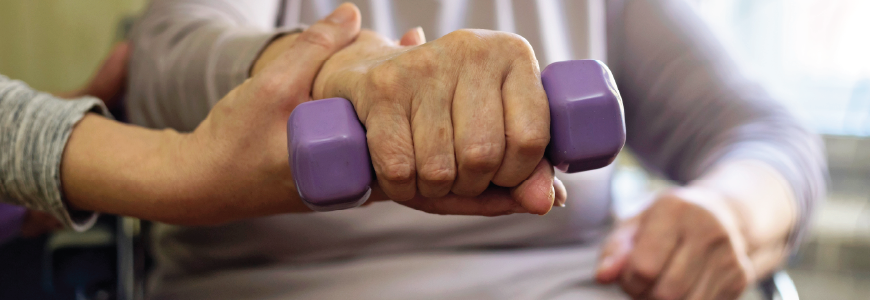Therapy Toolbox
Members: $51 | Non-members: $214
Tools to Help Therapy Collaboration with RAI Process and PDPM
Therapy offers vital services in the long-term and post-acute care setting that meet the Omnibus Budget Reconciliation Act’s (OBRA ’87) requirement that nursing homes provide necessary care and services to help each resident to attain or maintain their highest practicable physical, mental, and psychosocial well-being. Therapy staff dedicated to a collaborative effort with the clinical team can ensure effective communication regarding changes in function and screens or timely referrals. When the nursing department works with therapy to maintain or improve a resident’s function, this collaboration can also have a direct impact on many of the Quality Measures (QMs) tied to functional status and functional outcomes.

Therapy also serves a crucial role in PDPM, which effectively moved the focus of Medicare reimbursement from therapy volume to patient characteristics. PDPM has six components, three of which—Physical Therapy (PT), Occupational Therapy (OT), and Speech Language Pathology (SLP)—are directly related to the expected need for therapy services but do not depend on those services being ordered for the resident. Although therapy minutes or days are not used in PDPM methodology, the skilled services that therapy provides have an impact on the daily skilled care requirements under Medicare, as well as the OBRA requirements.
AAPACN’s Therapy Toolbox: RAI and PDPM is a collection of 20 practical tools designed by AAPACN nurse experts to assist the SNF therapy teams in collaborating with clinical teams to meet the unique needs of the residents and improve quality outcomes. The tools support four key areas of collaboration:
- The RAI Process
- Quality Measure Management
- Providing Skilled Services
- Clinical Reimbursement
View the table of contents for the full list of tools included in the Therapy Toolbox: RAI and PDPM.
SNF Therapy Team
This comprehensive tool benefits all members of the SNF therapy team, including physical therapists, occupational therapists, speech language pathologists, therapy assistants, rehabilitation aides, therapy consultants, and anyone interested in learning more about how the therapy team collaborates as part of the interdisciplinary team (IDT) and contributes to the MDS process, skilled Medicare services, and PDPM.
